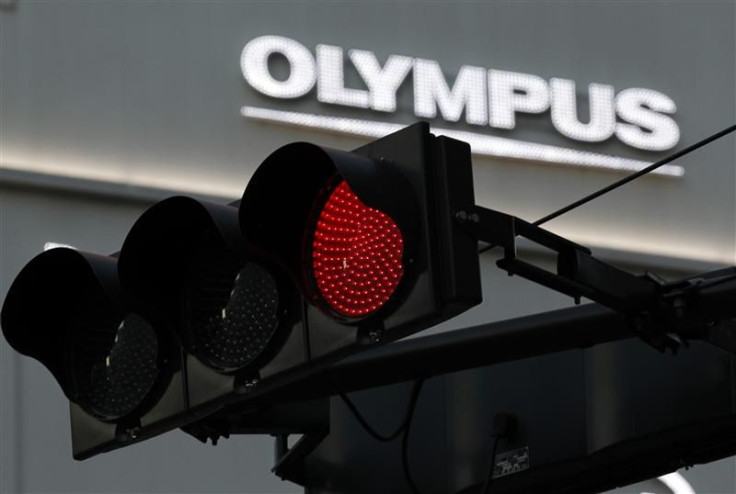Ex-VP of Olympus Questioned by Japanese Prosecutors: Media

Hisashi Mori, an ex-vice president of Japan's disgraced Olympus Corp., has been questioned by Japanese prosecutors on a voluntary basis as part of an investigation into an accounting scandal at the 92-year-old firm, media said Saturday.
Japanese authorities are investigating Olympus after the maker of cameras and endoscopes admitted it hid investment losses for decades using funds from acquisition deals.
Prosecutors will also question on a voluntary basis former Olympus President Tsuyoshi Kikukawa and internal auditor Hideo Yamada, both of whom are believed to be involved in hiding the losses through improper accounting, the media said.
Olympus President Shuichi Takayama has blamed Kikukawa, who quit on Oct. 26, Mori, and Yamada for the cover-up, and said he would consider criminal complaints against them. Mori has been fired, and Yamada has offered to resign.
The scandal at the once-proud firm has rekindled concerns about lax corporate governance in Japan.
It has also revived worries about links between companies and organized crime, as investigators are probing possible involvement by yakuza gangsters in the complex scheme used to hide the investment losses.
A unit from the Tokyo Metropolitan Police Department's organized crime division has joined the investigation, a source familiar with the matter said Friday. But the source added that it was premature to say whether gangsters were involved.
Links between companies, yakuza gangsters, and politicians have a long tradition in Japan. Authorities have been trying to crack down for decades, most recently with laws targeting not only crime syndicates but also firms that do business with them.
Olympus has admitted to improperly accounting for part of $1.3 billion in payments linked to acquisitions going back to 2006, although an independent panel commissioned by the firm to investigate the matter is still trying to get to the bottom of the issue.
A large share of these payments went to obscure Cayman Islands firms, making it difficult to trace the money.
Olympus has said Mori told the company none of the funds involved in the cover-up scheme had gone to anti-social forces -- a Japanese euphemism for gangsters -- but the firm was waiting for the independent panel's report, due early next month.
Olympus has lost more than 70 percent of its market value since the scandal broke last month, with major shareholders Nippon Life and Mitsubishi UFJ Financial Group sharply reducing their holdings in the company.
The Tokyo Stock Exchange has put Olympus shares on a watch list, a possible prelude to delisting.
Delisting would effectively cut Olympus off from equity capital markets, constraining its funding and making it harder for its lenders to keep supporting the firm in its battle to avoid having to sell off its core businesses. It could also damage Japan's reputation among global investors.
Proof that organized crime was involved could force the Tokyo exchange to delist Olympus shares, and would make it hard, if not impossible, for banks to make fresh loans to the firm.
(Reporting by Junko Fujita and Linda Sieg Editing by Ed Lane)
© Copyright Thomson Reuters 2024. All rights reserved.





















